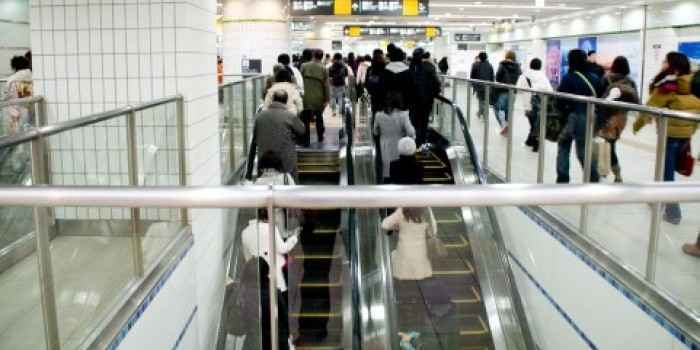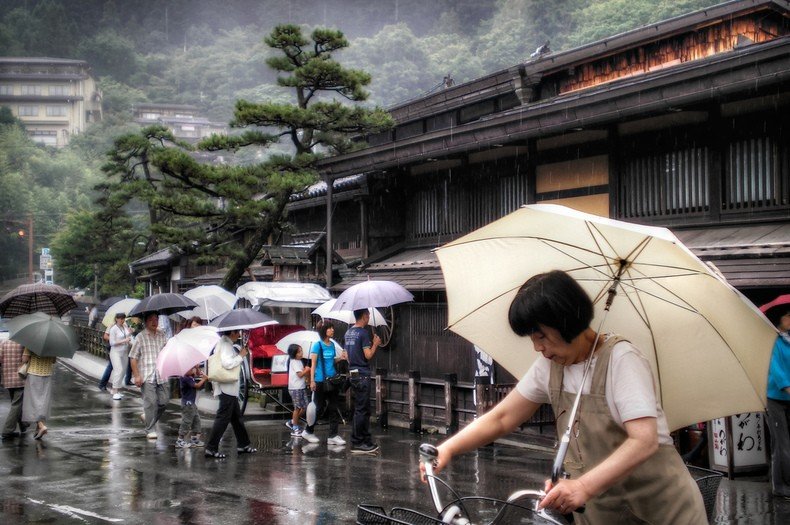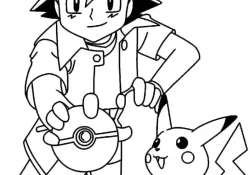Every country has its own set of written and unwritten rules that first-time visitors may not be aware of, and Japan is no exception.
While you probably won't be asked to leave a place for behaving strangely, knowing and respecting local customs will certainly leave a good impression on the Japanese locals!
Stay on the left when going up the escalator... Except in Kansai!
Japan has one of the highest population densities in the world, and people tend to do their best not to get in each other's way. One way to do this is to stand on the left side of the escalators so that people who are in a hurry can easily pass each other.
While the citizens of Kanto are on the left side, people in Kansai are on the right side. When in doubt, don't forget to look at the people who are using the treadmill and follow their lead!
Keep the elevator door open
When using an elevator, the person closest to the buttons will normally hold the door open for others when they enter and open the door when they leave on the next floor.
They can also press someone else's floor buttons if they are too far from the door and the elevator is crowded. So it's a good idea to review the Japanese numbers!
Use “Princess Sound”
If you are a girl and have visited or live in Japan, you may have seen the object pictured above in public restrooms, called Otohime (literally: “princess sound”). It is usually a sensor that when activated reproduces the sound of a toilet.
As many of these rules were created in order not to disturb those close by, Japanese women for not liking the idea of having their “body sounds” heard by people nearby and for not having to press the toilet while the sound is rolling down the toilet. that would generate great waste of water, they usually use the “princess sound” to simulate a continuous flushing noise until everything is ok.
The article is still halfway through, but we recommend also reading:
Cover your wet umbrella
The rainy season is no joke in Japan and in order to keep stores and restaurants clean, it's a good idea to use umbrella bags found at store and office entrances. Just slip your umbrella into the plastic bag and take it out when you throw the bag in the proper trash when you're gone.
If you are concerned about the environmental impact caused by plastic, you can easily find reusable umbrella cases for ¥100 in stores or online.
Don't smoke on the street
If you are walking around town and would like to light a cigarette, you should do so in a designated smoking area (like the image above). There is usually a train station close by. Streets in big cities tend to be very crowded and you don't want to bother someone walking behind you with your secondhand smoke, or at worst burn you with a lit cigarette.
Of all the rules listed here this is one you should really keep in mind, with the danger of being fined. Contrary to this, however, smoking is actually allowed inside many restaurants, clubs and izakaya (Japanese bars)
Avoid blowing your nose in public – wear a mask if you are sick
It's not common to see Japanese people covering their face with their hand to sneeze. One explanation is that blowing your nose can cause germs to spread around and you definitely don't want to do that in an area densely populated by hard-working business people.
Wearing a surgical mask is quite common. Don't think that the plague is spreading, it's just a normal way to protect yourself and others from various diseases. In fact, it's so common that you can find many varieties of surgical masks with different features, sizes, and even colors!
Don't eat while walking
If you've been to Japan long enough, you'll have noticed that hardly anyone eats outside, with the exception of festivals. While eating on the street won't send you to jail, you're sure to get yourself the stares of many Japanese. It is difficult to point to an official explanation. Some consider it to be sloppy, while others believe it is due to the lack of trash cans. With the exception of convenience stores, there are no garbage cans around, meaning eating outside would mean carrying a trash can with you throughout the day.
While people usually don't eat while walking, it's normal to see customers outside convenience stores or next to garbage cans. Also, you may see some small snacks like bread and rice balls being consumed quickly, but nothing else is generally okay.
Don't make phone calls on the train
In the spirit of not disturbing others, when boarding a train it is polite to put your cell phone on vibrate or silent mode. You will certainly hear this rule stated quite often in advertisements on trains and stations. If someone calls you, it is acceptable to respond briefly and say that you are on a train and you will call them back when you get off the train.










